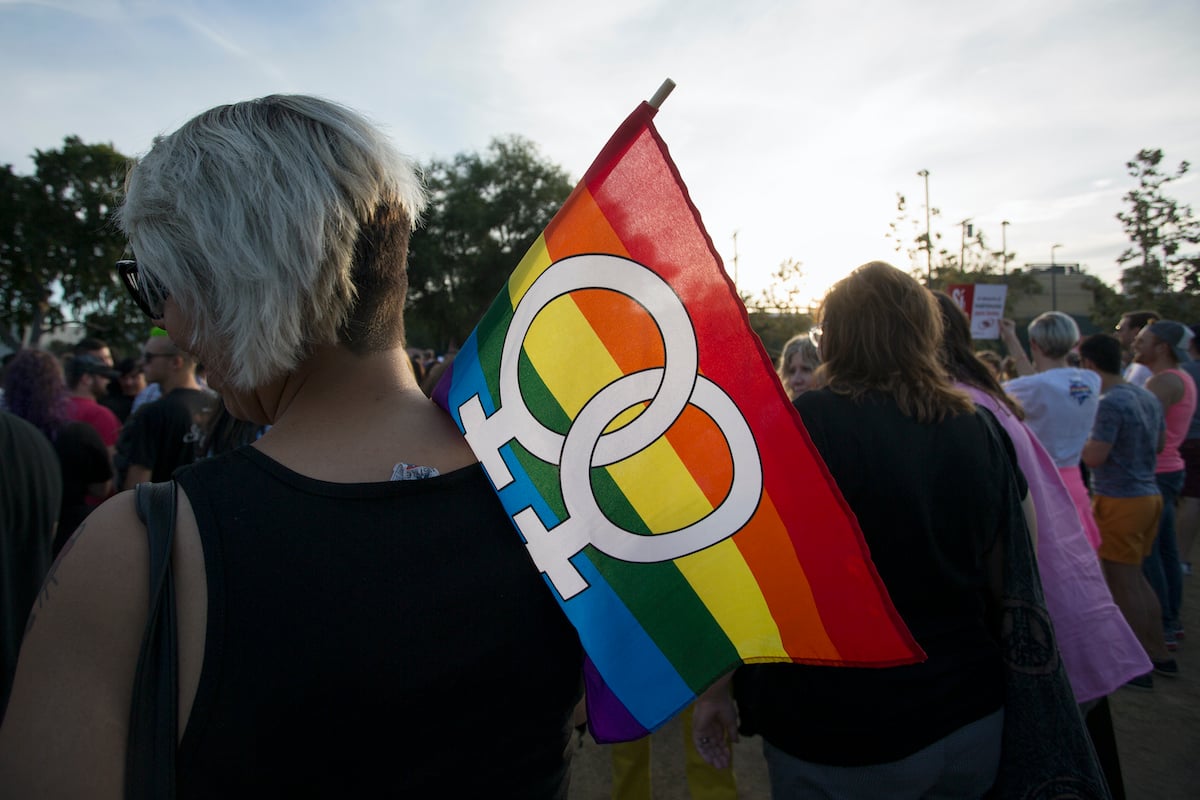It seems beyond ludicrous that in this year of 2022, we’re still having to debate whether people and businesses and schools and anything else should be able to discriminate against people on the basis of their gender identity and sexual orientation, and yet here we are, debating it.
The Supreme Court announced this week that it will hear 303 Creative LLC v Elenis, which centers on a business’ desired right to discriminate against same-sex couples.
We’ve seen plenty of these cases before—most notably with 2018’s Masterpiece Cake Shop v Colorado Civil Rights Commission. In that case, the court ruled in favor of the baker who claimed that having to make a wedding cake for a same-sex couple violated his religious freedoms.
The hope at the time was that that case would set a precedent that anti-discrimination laws like the ones Colorado already had on the books could not be superseded by religious freedom claims. Instead, the court sided with the baker but did so in pretty much the narrowest way possible, leaving the door open for future cases regarding the exact same issue, like what we’re now seeing in 303 Creative.
Well, 303 Creative isn’t exactly the same. While Masterpiece was centered on a homophobe who didn’t want to bake a cake that someone requested, 303 Creative is about someone so opposed to recognizing the basic civil liberties of gay couples that she’s suing proactively, seeking the right to discriminate in hypothetical future scenarios.
Vox’s Ian Millhiser writes:
303 Creative presents many of the same questions at issue in Masterpiece Cakeshop and Fulton [v City of Philadelphia, which involved discrimination against same-sex couples looking to be foster parents]. It involves a web design company owned by a woman named Lorie Smith, who refuses to create websites celebrating same-sex weddings. She claims that “doing that would compromise my Christian witness and tell a story about marriage that contradicts God’s true story of marriage.”
Thus far, Smith has not sold her services to anyone who wants a wedding-related website, because she fears violating Colorado’s law prohibiting discrimination against LGBTQ people. She wants the Supreme Court to give her license to design wedding websites for opposite-sex couples — and only for opposite-sex couples.
While Masterpiece was taken as a win by Christian conservatives, it really did provide only a narrow exemption to civil liberties protections.
Basically, the ruling said that civil rights commissions could still enforce civil liberties and prevent discrimination, even on the grounds of religious freedom, but that they had to be nice about it. They couldn’t disparage those wanting to discriminate against LGBTQIA people or assume malicious intent.
Think Progress described the decision excellently at the time:
Masterpiece is the jurisprudential equivalent of a Bari Weiss column. It bends over backwards to see chauvinistic conservatives in the most favorable light, while completely missing the broader, more important issues at stake in the case. The opinion reads as if the central matter at issue was not so much about resolving a conflict between religious bakers and same-sex couples as it was about an urgent need to police the tone of civil rights commissioners.
But the Supreme Court today is very different from the court of just a few years ago. This new court, stacked with Trump’s ultra-conservative Federalist Society justices, “appears eager to give religious conservatives sweeping exemptions from the law,” as Millhiser writes.
303 Creative is likely to be a landmark case in terms of either upholding or (unfortunately, more likely) eroding discrimination protections nationwide and we’ll be keeping an eye on it as it moves forward.
(image: David McNew/Getty Images)










Published: Feb 23, 2022 03:25 pm